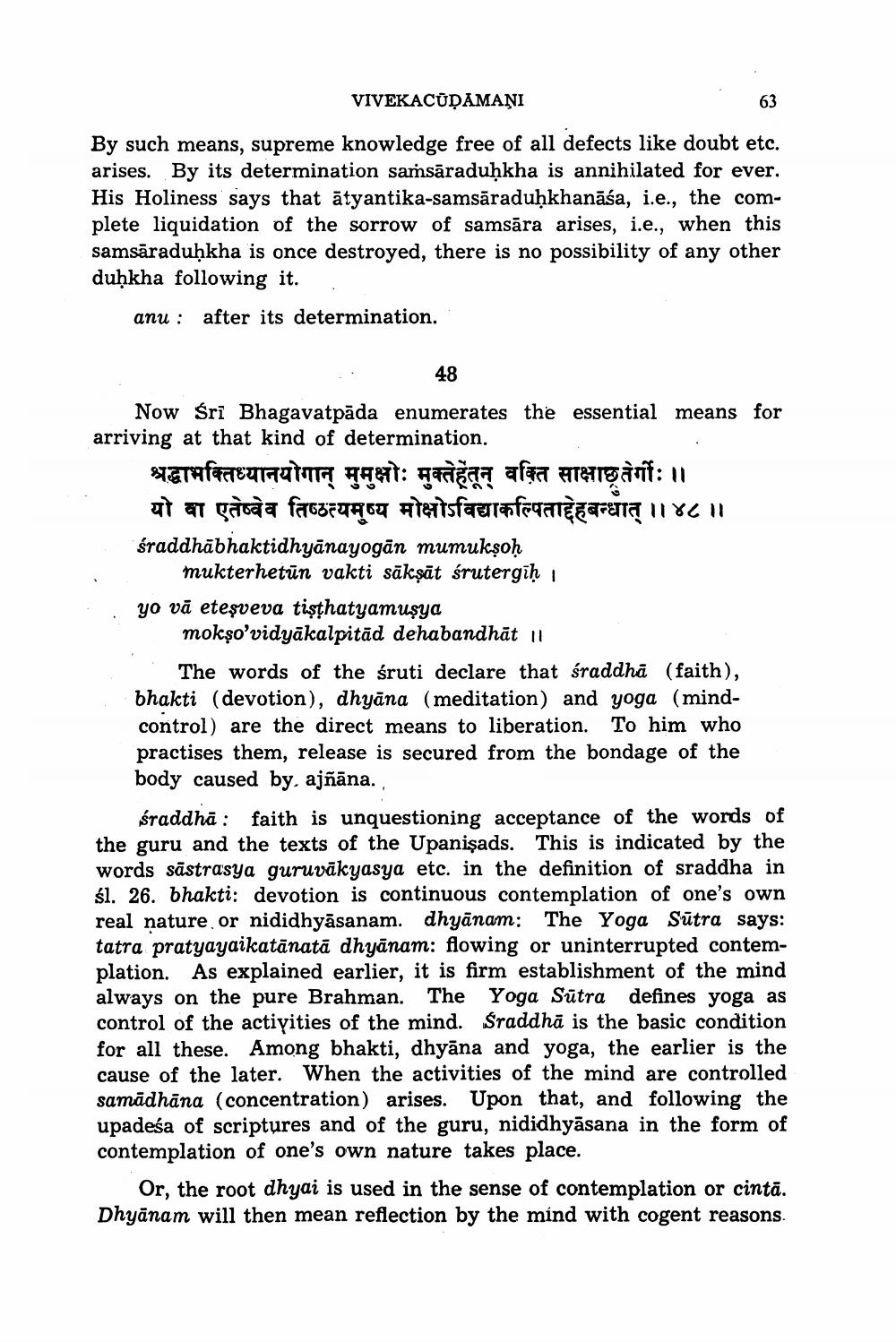________________
VIVEKACŪDAMAŅI
63
By such means, supreme knowledge free of all defects like doubt etc. arises. By its determination samsāraduhkha is annihilated for ever. His Holiness says that ātyantika-samsāraduḥkhanāśa, i.e., the complete liquidation of the sorrow of samsāra arises, i.e., when this samsāraduḥkha is once destroyed, there is no possibility of any other duḥkha following it.
anu : after its determination.
48
Now Śrī Bhagavatpāda enumerates the essential means for arriving at that kind of determination.
श्रद्धाभक्तिध्यानयोगान् मुमुक्षोः मुक्तेहेतून वक्ति साक्षाछूते!ः॥
यो वा एतेष्वेव तिष्ठत्यमुष्य मोक्षोऽविद्याकल्पिताद्देहबन्धात् ॥४८॥ śraddhābhaktidhyānayogān mumuksoḥ
mukterhetūn vakti sākṣāt śrutergīḥ 1 yo vā eteşveva tişthatyamuşya
mokṣo'vidyākalpitād dehabandhāt 11
The words of the śruti declare that sraddhā (faith), bhakti (devotion), dhyāna (meditation) and yoga (mindcontrol) are the direct means to liberation. To him who practises them, release is secured from the bondage of the body caused by, ajñāna.
śraddha : faith is unquestioning acceptance of the words of the guru and the texts of the Upanişads. This is indicated by the words sāstrasya guruvākyasya etc. in the definition of sraddha in śl. 26. bhakti: devotion is continuous contemplation of one's own real nature or nididhyāsanam. dhyānam: The Yoga Sūtra says: tatra pratyayaikatānată dhyānam: flowing or uninterrupted contemplation. As explained earlier, it is firm establishment of the mind always on the pure Brahman. The Yoga Sūtra defines yoga as control of the activities of the mind. Sraddhā is the basic condition for all these. Among bhakti, dhyāna and yoga, the earlier is the cause of the later. When the activities of the mind are controlled samādhāna (concentration) arises. Upon that, and following the upadeśa of scriptures and of the guru, nididhyāsana in the form of contemplation of one's own nature takes place.
Or, the root dhyai is used in the sense of contemplation or cintā. Dhyānam will then mean reflection by the mind with cogent reasons.




